Typhoons can cause enormous damage not only to plants and farms, but also to wild animals. One of the victims of the foul weather earlier this week was a baby dove, found sitting in a state of shock on my neighbour’s lawn. With the bird’s parents nowhere to be found, the neighbour brought the baby dove to me. “You keep birds, you must know a thing or two about them,” he said handing the poor wet creature to me. I do indeed have an aviary and even some experience with hand-raising baby parrots. However, it’s one thing bringing up a baby bird that has already become accustomed to human handling and a completely different one trying to look after a helpless wild chick which, up until this point, has been completely dependant on its parents!
The young feathered creature is probably a Spotted dove (Spilopelia chinensis), a very common species in the area. At less than two weeks of age, it still cannot fly and it certainly doesn’t know how to find food or even how to digest it. As is generally the case with pigeons, both parents feed the baby with highly nutritious milk mixture from their own crops, clearly a situation impossible to replicate by a human substitute. So we do the next best thing – try to feed it soft millet mixed with baby bird powder diluted in warm water with the help of a syringe. This isn’t always successful as the young bird will not understand the purpose of this strange process and will often prefer to wait for the “real” food brought by one of its parents.
As with most young birds, this baby dove isn’t a very pretty animal. Furthermore, its untidy appearance was made still worse by the presence of pigeon flies in the bird’s feathers. This nasty parasitic insect is amazingly well adapted to living and gliding through pigeons’ feathers and feeding on their blood. While not a life-threatening situation for the dove, the fly is an intruder whose bites are surely very irritating, if not painful. Luckily, a quick trip to my local bird shop resulted in my discovering permethrin, an antiparasitic solution which I sprayed on the bird’s feathers and which worked like magic – the flies were all gone within seconds. So at least that’s good news.
Otherwise the baby dove seems to have relaxed to the point that it no longer objects (with nervous movements and a threatening beak) to my presence. Earlier in the day it also attempted a flight – only for the little guy to land on the lawn in a rather cumbersome fashion. Right now it is sitting quietly just outside the aviary, in an enclosed shed. It still produces droppings, even though it hasn’t eaten much lately. I will try to feed it again in the evening.
(This page has been viewed 4255 times.)
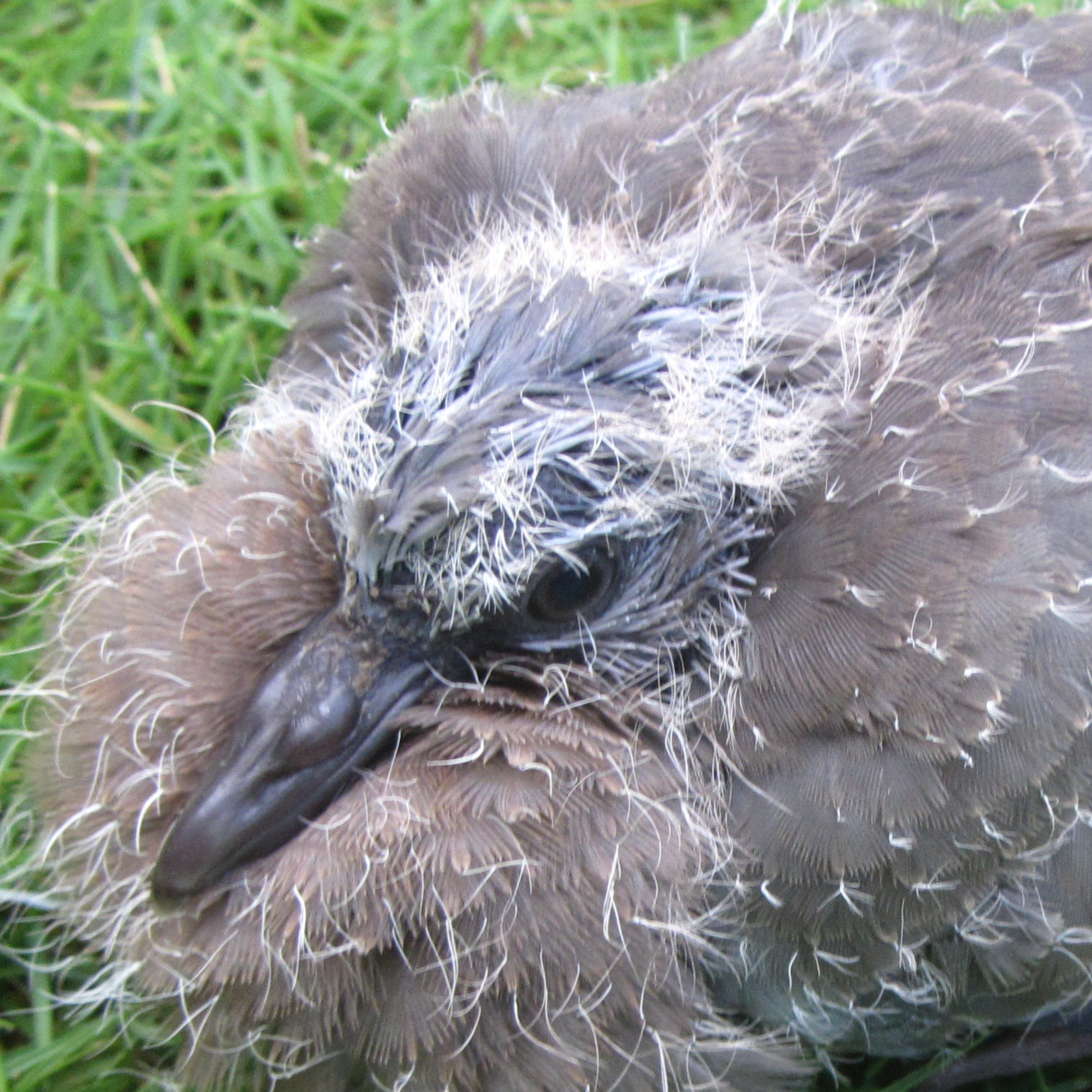
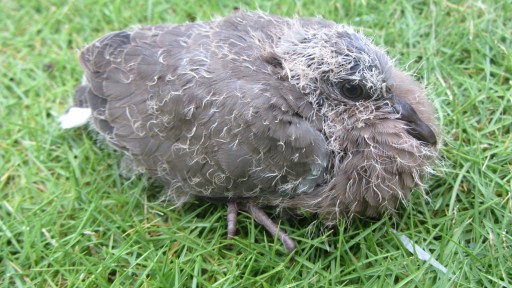
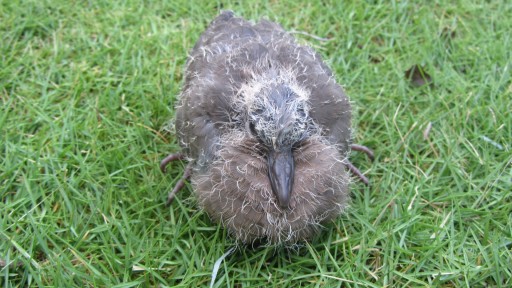
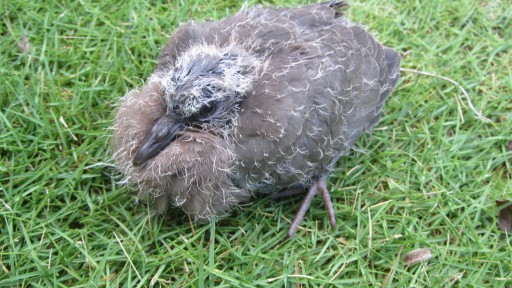
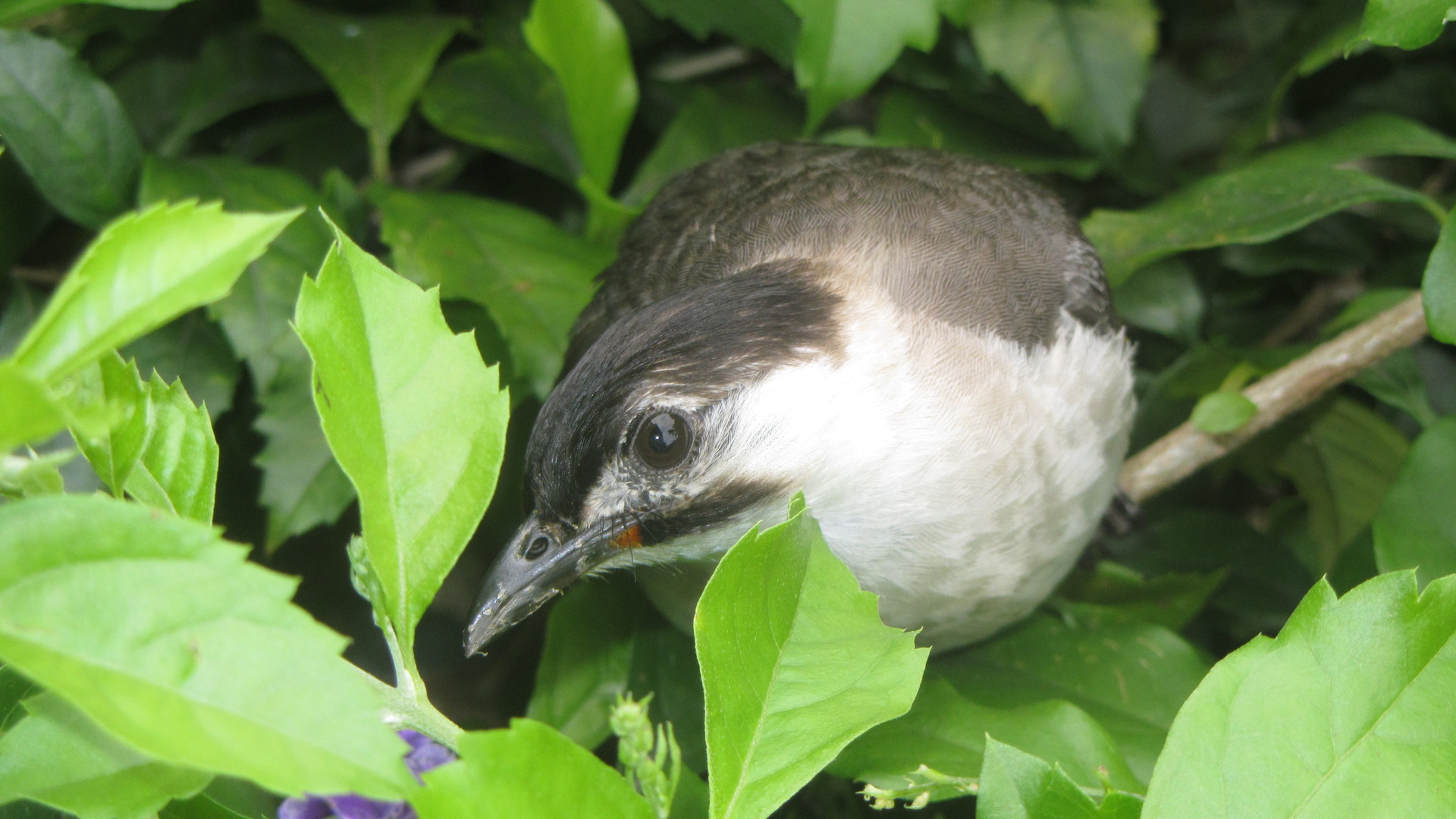

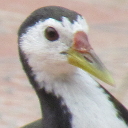
My husband found a baby pigeon it is now with us a week estimate the age approximately three weeks Feeding it four times a day on pronutro mixed in water .Can it be released into the wild when fully grown
Yes, you can release it as soon as it learns to fly well (i.e. when it’s able to fly from the ground up to a tree to escape a potential predator). It will probably hang around for a few days before it starts exploring the world, but it will likely keep coming back to your house whenever if gets hungry. I suggest you keep feeding the bird even after it’s released – as its parents weren’t around to teach it how to find food, it will have hard time surviving without your help.